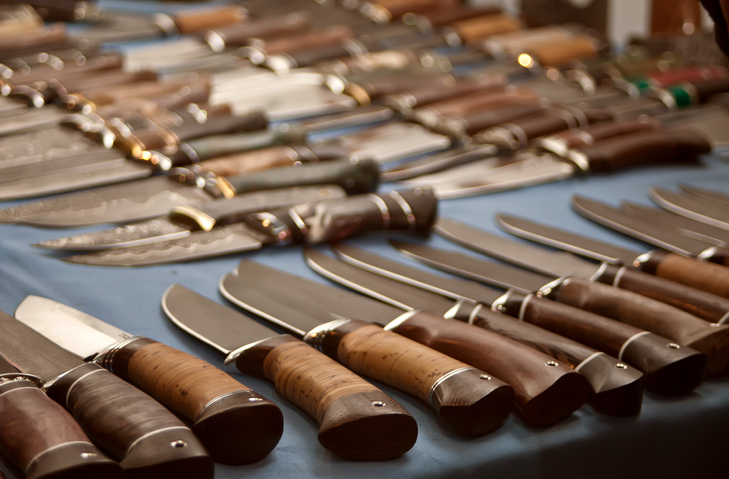12 Tips For Rare Knife Collectors
Posted by Derek Swanson on 19th Jun 2023

Rare knife collecting is a passion that can span generations and bring immense joy to collectors. Collecting rare knives has been around for centuries, with some of the oldest and most valuable pieces being dug up in archaeological digs all over the world.
Whether you’re just starting out or an experienced collector looking to add to your collection, here are 12 tips for rare knife collecting.
1. Do Your Research: Before you get started, it’s important to do your research and familiarize yourself with the different types of knives that are out there as well as their history and value. You should also take time to learn about the different manufacturers and their styles, so that you can properly identify and authenticate knives.
2. Set a Budget: It’s essential to set a budget for your knife collecting, as rare knives can be quite expensive. Knowing how much money you are willing to spend on each knife will help keep you from overspending or getting into debt while still allowing you to purchase the best pieces within your budget.
3. Determine Your Collection Goals: It’s important to have a clear idea of what you are collecting and why to help guide your decisions. Are you interested in vintage knives or modern knives? Do you want to focus on specific eras or geographic regions? Having a clear goal for your collection will help you make better choices about which pieces to add.
4. Start a Wish List: Before you start shopping for knives, create a list of the pieces you want to own. This will help you keep track of which knives you already have and which ones you still need so that you don’t end up buying duplicate pieces.
5. Purchase From Reputable Sources: When it comes to rare knives, it’s essential that you purchase from reputable sources. Avoid buying from unknown sellers, auctions, or online marketplaces, as these can be risky, and you may end up with a counterfeit piece. Here are a few of our favorite places to buy rare knives:
- Knife & Collector: An online marketplace for rare and vintage knives.
- Knifeworks : A knife store that specializes in collecting, buying, and selling knives from all over the world.
- Auction Houses: If you’re looking for high-value pieces, then auction houses are the way to go.
6. Join Collecting Clubs: Joining a knife collecting club is a great way to meet other collectors and stay up to date on the latest trends in the industry. You can also benefit from the expertise of more experienced members as well as find out about upcoming events and sales.
7. Keep Detailed Records: It’s important to keep detailed records of each piece in your collection. This includes information about the knife itself, such as its age, make, model, and any other distinguishing features. You should also record where you bought it from and what you paid for it. This will help you track the value of your collection and ensure you always have the correct information handy when needed.
8. Know Your Value: Knowing what your knives are worth is essential for budgeting purposes as well as protecting yourself from fraud or theft. It’s important to stay up to date on the current market prices for rare knives so that you can be sure you’re not overpaying or getting ripped off.
9. Invest in Quality Storage: Investing in quality storage for your knives is key to protecting them from damage. Consider investing in a knife safe and secure display cases, as well as storing them in acid-free paper or cloth bags.
10. Stay Organized: It’s essential to stay organized when building your collection. Create a system for keeping track of all the knives in your collection, and make sure you clean them regularly. This will help you keep an eye on any potential damage or wear-and-tear issues so that you can address them quickly and before they become more serious.
11. Consult the Pros: If you’re ever unsure about a piece, it’s always best to get an expert opinion. There are many professional appraisers and dealers who specialize in rare knives and can offer valuable insight into a piece as well as its value.
12. Have Fun: Above all else, make sure you’re having fun! Rare knife collecting can be a thrilling and rewarding hobby, so don’t forget to enjoy it. After all, that’s why you got into it in the first place. Happy collecting!
